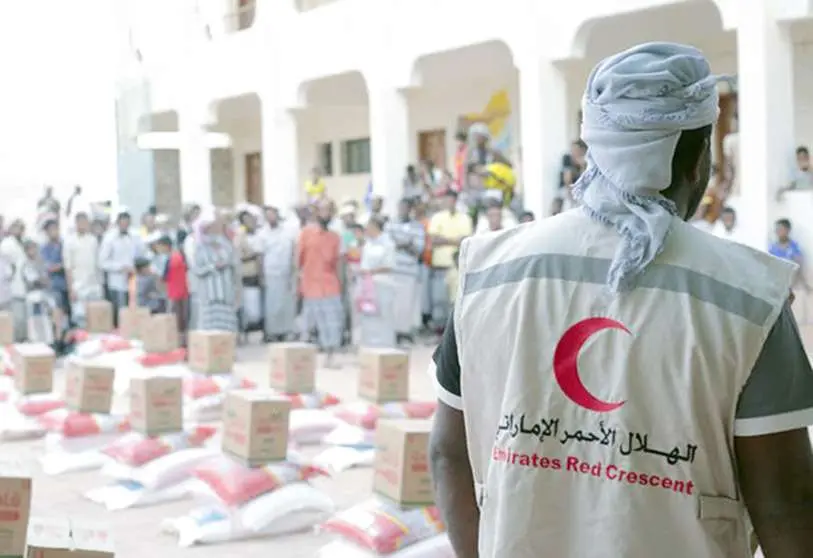Emirates launches health sector improvement project in Yemen

The United Arab Emirates Red Crescent Authority on Tuesday launched the first phase of a project to improve the capacity of the health sector in Yemen. The plan aims to build, rehabilitate and maintain eight medical institutions in the governorate of Hadramaut.
The first phase, sponsored by the President of the Republic of Yemen, Abd Rabbuh Mansur al-Hadi, included opening four hospitals in the governorate with a capacity of 273 beds and providing the necessary medical devices and equipment. These projects are the implementation of the directives of Sheikh Mohammed bin Zayed al-Nahyan, Crown Prince of Abu Dhabi and Deputy Supreme Commander of the Armed Forces, and the follow-up of Sheikh Hamdan bin Zayed al-Nahyan, the representative ruler in the Al-Dhafra region, chairman of the Red Crescent Authority.
These hospitals, including two new ones, in addition to rehabilitating and completing the construction of the remaining hospitals and providing them with medical equipment and supplies, were opened by Yemeni Prime Minister Dr. Maeen Abdul-Malik, together with the governor of Hadramaut, commander of the Second Military Region, Major General Faraj Salmeen al-Bahsani, the Authority's delegation and a number of Yemeni officials.
This project has been carried out to strengthen Yemen's efforts to tackle the COVID-19 pandemic. The centres have been opened in four addresses on the Hadramaut coast, which are the hospitals of: Gail Bawazir, Al-Dees al-Sharqiya, Al-Ridha Al-Sharqiya and Qusayr.
The Yemeni Prime Minister welcomed the Emirati delegation, stressing the importance of the occasion and its positive impact on the citizens of Hadramaut governorate. He also praised the great role that the UAE plays in a number of liberated governorates, including Hadramaut, and its interest in health and various service sectors in the government.
He also expressed the Yemeni government's appreciation and gratitude for the continued support provided by the Emirati brothers and their humanitarian organisation in Yemen, the Emirati Red Crescent, as well as in the areas of service, development and aid, which expresses "the depth of brotherly relations and cooperation between the two countries and the two brotherly peoples".
Dr Muhammad Ateeq al-Falahi, secretary general of the Red Crescent Authority, said in a statement that the UAE plays a key role in the rehabilitation of the health sector in Yemen thanks to the initiatives and support of the leadership and the follow-up of Sheikh Hamdan bin Zayed al-Nahyan, the ruler's representative in the Al-Dhafra region, chairman of the Red Crescent Authority.
He also stressed that the Emirates Red Crescent Authority continues its humanitarian and development efforts by providing more assistance to support the stability of those affected by the events in Yemen and help them restore their activity and vitality.
Al-Falahi said the medical sector development project in the Hadramaut region is one more link in a series of pioneering development projects that the Emirates Red Crescent is implementing in the Yemeni environment. He also noted that the authority is aware of the great challenges facing the health sector in Yemen due to the current conditions there.
For his part, the governor of Hadramaut, Major General Faraj Salmeen al-Bahsani, expressed his delight at the inauguration of these vital institutions to support the health sector in the governorate. He expressed his sincere thanks and appreciation to the leadership and people of the UAE for their fraternal stances in support of Yemen in its current conditions, and said that "these hospitals will provide increased medical care to the people of the governorate and prepare to respond to any further increase in the number of wounded and sick".
These hospitals complement the assistance provided by the UAE as part of its work to enhance countries' efforts to fight the pandemic. In addition, it seeks to support the health sector in the governorate in the preparation and construction of eight health projects in Hadramaut, benefiting some 3 million people in Yemen's eastern governorates of Hadramaut, Al-Mahrah, Shabwa and Socotra.








